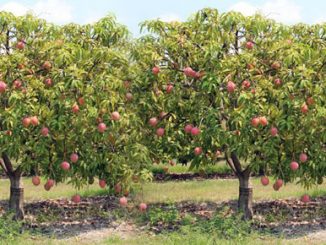
Among the objections on Hadith al-Ghadeer is related to the word ‘Mawla’. The skeptics claim that the word Mawla used in the Hadith does not mean Khalifa (Caliph) or Ulul al-Amr (leader entrusted with divine authority). There are numerous words for an important topic like leadership that the Prophet (s.a.w.a.) could have used, such as: Malik, Ulul al-Amr, Sultan, Wali, Hakim, Imam, etc.
Hence, they claim Mawla cannot be taken as leader / figure endowed with divine authority as it does not have the same meaning as Malik, Ulul al-Amr, Sultan, Wali, Hakim, Imam, which are more apt for conveying a leadership position for the Prophet’s (s.a.w.a.) successor.
Reply
The usage of the word ‘Mawla’ meaning ‘guardian’ or ‘figure entrusted with divine authority’, is mentioned in the Quran, and scholars of Ahle Tasannun have also affirmed this meaning. Allama Amini (r.a.) discusses this topic thoroughly in ‘Al-Ghadeer,’.
In verse 15 of Surah Hadid (57), Allah says:
فَالْيَوْمَ لَا يُؤْخَذُ مِنكُمْ فِدْيَةٌ وَلَا مِنَ الَّذِينَ كَفَرُوا مَأْوَاكُمُ النَّارُ هِيَ مَوْلَاكُمْ وَبِئْسَ الْمَصِيرُ
So today ransom shall not be accepted from you nor from those who disbelieved; your abode is the fire; it is your Master and evil is the resort. (Surah Hadid (57): 15)
The scholars of Ahle Tassanun have interpreted ‘Mawla’ in this verse as ‘more worthy’ or ‘one endowed authority over its inmates’ (guardianship).
- Sahih Bukhari, vol. 4, p. 1815
- Tabari in Al-Bayan Jame, vol. 27, p. 228
- Taftazani in Sharhe al-Maqasid, vol. 5, p. 273
- Qoshji in Shahrat al-Tajrid, p. 447
- Shafi’i in the material of al-Sul, p. 16
- Ibn Juzi in al-Takhra, p. 19
- Maliki in al-Fusul al-Hummah, p. 28
- Shablanji in Nur al-Absar, p. 78
Allama Amini mentions 27 scholars of Ahle Tasannun who interpret the term ‘Mawla’ in the verse as meaning guardianship and more specifically as one who has more superiority over one than his own self.
- Translation of Al-Ghadeer (Persian) v 2 p 296 to 301
He also mentions 15 scholars of Ahle Tasannun who consider guardianship to be one of the most suitable meanings of ‘Mawla’ in the verse.
- Translation of Al-Ghadeer (Persian) v 2 p 301-302
Moreover, the Ahle Tasannun scholars have interpreted Allah’s statement in this verse to mean guardianship / mastership:
أَنتَ مَوْلاَنَا
‘You are our Guardian.’ (Surah Baqarah (2): 286)
- Al-Kashf wa al-Bayan of Thalabi v 2 p 309
There are other verses where the term ‘Mawla’ has been used to mean ‘Guardian’. Interested readers can do a simple search for the word Mawla in Quran and review the local translation, which is always Guardian / Master.
What has been presented proves that the use of the word ‘Mawla’ in the meaning of ‘Guardian’ or ‘Master over oneself’ is well-established in Arabic literature, and those who have questioned this are deprived of understanding Arabic literature and the language of the Quran.
But why did the Prophet (s.a.w.a.) use the word ‘Mawla’?
Reply
Seeing the proofs from the Noble Quran on usage of the word Mawla, it is clear why the Prophet (s.a.w.a.) chose this specific word. As Muslims are familiar with the text / language of the Noble Quran, Allah and His Prophet (s.a.w.a.) chose this specific title / term in Hadith al-Ghadeer, since Mawla features many times in the Noble Quran in the meaning intended by Holy Prophet (s.a.w.a.) in Ghadeer.
However, the Prophet (s.a.w.a.) did not restrict his declaration on Ali’s successorship to just one word i.e. Mawla. The Prophet (s.a.w.a.) also used the title ‘Imam’ to express the caliphate of Imam Ali (a.s.), as also terms like ‘Khalifa’ and ‘Wasi’ (executor).
Hakim Nishapuri, a notable scholar among the Sunni, narrates that the Prophet (s.a.w.a.) said:
I have received through revelation that Ali (a.s.) has three characteristics: he is the chief of the Muslims, the Imam of the righteous, and the leader of the bright forehead ones.
Hakim states that the hadith is authentic.
- Al-Mustadrak v 3 p 137
Caliph and Successor
Tabari narrates that the Prophet (s.a.w.a.) said regarding Ali (a.s.):
Indeed, this person is my brother, my successor, and my caliph among you, so listen to him and obey him.
- Tarikh al-Tabari v 2 p 220
Regarding the use of the word ‘Mawla’, it is worth mentioning that the usage of a word that has multiple meanings, is explained with context to give its intended meaning – this is quite common in Arabic literature and is also found in the Quran.
Allama Mir Hamid Husain (r.a.) brings forth more than 30 pieces of evidence and reasons in his esteemed book ‘Abaqat al-Anwar’, indicating that the intended meaning of Mawla is guardianship.
- Abaqat al-Anwar v 9, 10
Some researchers say regarding the reason the Prophet used the word ‘Mawla’:
1 The Prophet (s.a.w.a.), in the Sermon of Ghadeer, prior to introducing Ali (a.s.) as one endowed with authority (Mawla), uses an argument and cites verse 6 of Surah Al-Ahzab: “The Prophet is closer to the believers than their own selves.”
Therefore, the only words that can be root and indicative of this meaning are ‘Mawla” and “Wali.”
2 In the word “Wali,” in addition to the meaning of caliphate and succession, it also carries the meaning of friendship and affection. However, this meaning for Ali (a.s.) must be applied in conjunction with the meaning of ‘one endowed with authority’. Like when the Nobly Quran in Surah Baqarah (2): 286 declares Allah is Your Mawla, it primarily means that Allah has authority you; other meanings like supporter, friend can be taken as secondary interpretations, but never the primary interpretation since Allah is certainly not just a friend / supporter of His Creation. (Shubhat-e-Ghadeer, Asiri, v 2 p 132)
Clearly, there can be no objection to the use of the term Mawla to indicate a figure of authority, seeing that Mawla has featured in the Noble Quran in many places with the very same meaning.




Be the first to comment